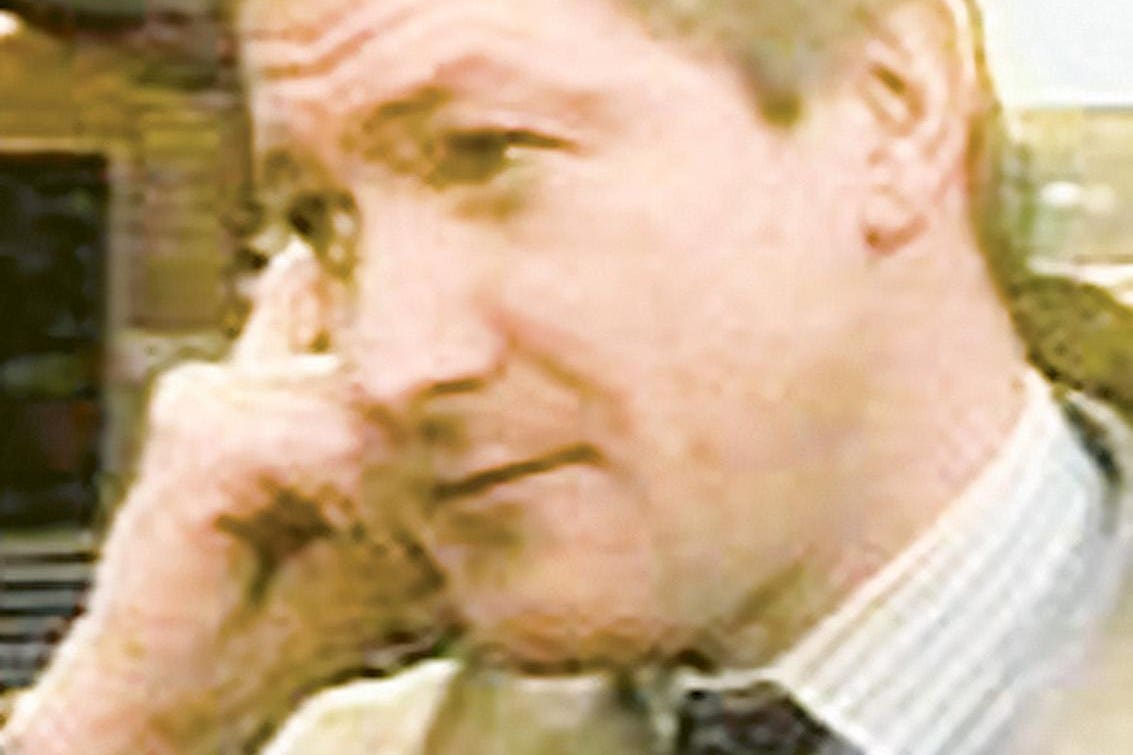Finucane family ‘appalled by Blair’s ignorance’ of case details in 2000 meeting
The meeting was set up after a pledge from taoiseach Bertie Ahern.

Your support helps us to tell the story
From reproductive rights to climate change to Big Tech, The Independent is on the ground when the story is developing. Whether it's investigating the financials of Elon Musk's pro-Trump PAC or producing our latest documentary, 'The A Word', which shines a light on the American women fighting for reproductive rights, we know how important it is to parse out the facts from the messaging.
At such a critical moment in US history, we need reporters on the ground. Your donation allows us to keep sending journalists to speak to both sides of the story.
The Independent is trusted by Americans across the entire political spectrum. And unlike many other quality news outlets, we choose not to lock Americans out of our reporting and analysis with paywalls. We believe quality journalism should be available to everyone, paid for by those who can afford it.
Your support makes all the difference.The family of murdered solicitor Pat Finucane were “appalled by Blair’s ignorance” of case details during a meeting in 2000 where they pushed for a public inquiry.
The high-profile defence solicitor was gunned down by loyalist paramilitaries inside the family home in north Belfast in 1989.
The meeting between his family and UK prime minister Tony Blair was set up after a pledge from taoiseach Bertie Ahern earlier in 2000.
In February 1999, based on the findings of a report by Jane Winter of the British-Irish Rights Watch (BIRW), it was conveyed to the Northern Ireland secretary Mo Mowlam that the Irish government believed a public inquiry was “necessary”.
Though minister of state Liz O’Donnell had said in a letter to Ms Mowlam that the case for a public inquiry was “compelling”, the Irish government had not made a public statement calling for such a probe.
Documents released to the National Archives show the Irish government made more than one prompt to ensure the family met Mr Blair.
The meeting at No 10 Downing Street was attended by Pat’s widow Geraldine and their children Michael, John and Katherine, and had been scheduled for 30 minutes but instead lasted 50.
Solicitors Paul Mageean and Peter Madden as well as Ms Winter attended the meeting with Mr Blair, who was accompanied by Jonathan Powell.
In a confidential document dated September 5 2000, Fergal Mythen, of the Irish government’s security section, said he spoke to Ms Winter after the meeting.
“It was at the start a very disappointing meeting from the family’s perspective, with Blair sticking rigidly to the line that an independent inquiry was not possible while the Stevens’ investigation was ongoing.”
John Stevens conducted three probes into allegations of security force collusion with loyalist paramilitaries.
She said that Mr Blair said Northern Ireland secretary Ms Mowlam had called in Mr Stevens in February 1999; the family understood that RUC Chief Constable Ronnie Flanagan had made the decision unilaterally to block a public inquiry.
When pressed on this, “Blair backtracked somewhat, saying ‘don’t quote me on that'” and Powell “also intervened to ‘muddy the waters’ on this point”.
Ms Winter said she thought Mr Blair was “initially very dismissive of their case” and had initially tried to distance his Government from it.
“He was also badly briefed and they were ‘appalled by his ignorance’ of the details of the case,” the note stated.
Geraldine Finucane, who had been injured in the attack, told him that though the Labour government had not created the problem, if it was not dealt with now “they too would be culpable”.
Mr Blair was told that the handling of the case could negatively impact the peace process and that it was about winning the confidence of nationalists in the system of law.
The note states that about halfway through the meeting, Mr Blair went “off-brief” and began to “engage seriously” with the arguments being put to him.
“Blair said he wanted to know the truth and that, if he found that members of the security forces had targeted individuals for murder, then ‘they would be out of a job’.
“The Finucanes were encouraged by his evident strength of feeling on this point.”
During Mr Ahern’s meeting with the family in February, to coincide with the 11th anniversary of Pat Finucane’s killing, Geraldine Finucane had asked him to arrange the meeting with Mr Blair to push him on a public inquiry.
Minister for foreign affairs Brian Cowen and minister of state Liz O’Donnell also attended the February meeting.
The notes of the meeting said the report by Ms Winter was “the most shocking report they had ever written” and alleged there was “machinery within the British system which targeted people for murder”.
Mr Ahern said he had sent a letter to Mr Blair eight months previously, in June 1999, when he said the case for a public inquiry was “compelling” and asked him to proceed “urgently in this regard”.
He said this would have given enough time to establish an inquiry.
He added he had also raised the Finucane case during St Patrick’s Day meetings in Washington the previous year and would do so again in March 2000.
The material can be viewed in the National Archives in file 2023/154/20